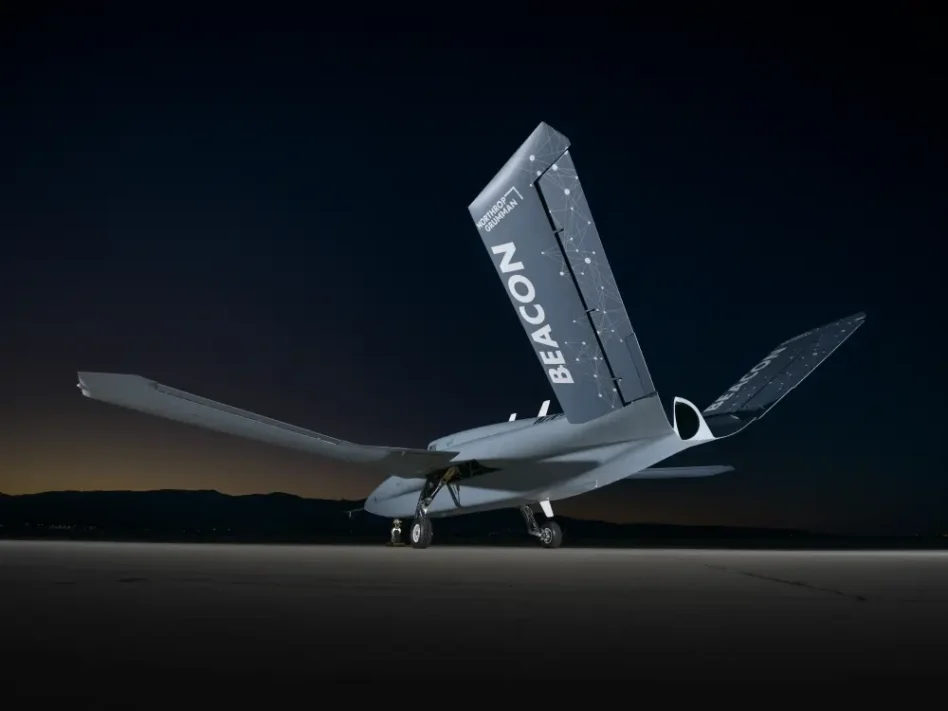You know what they say: if you can’t beat ‘em, join ‘em. Yesterday, Northrop Grumman announced the first six startups that will join its “Beacon Project” to “rapidly test and deliver new autonomous solutions at scale.”
Seems the big time prime might be realizing what we’ve been waxing lyrical about for ages: Especially when it comes to newer tech, nontraditional defense companies might just know what they’re doing.
Strange (test)bedfellows: Northrop unveiled Beacon last month as “an autonomous test bed ecosystem to quickly mature mission autonomy software in an integrated, operationally relevant environment.” According to the company, it’ll give “third-party partners an opportunity to test new autonomous solutions with exposure to industry leaders who can scale them.”
Here’s who will be teaming up with the big ol’ prime:
- Applied Intuition, the $15B juggernaut making dual-use simulation and autonomy software. Its acquisition of EpiSci this year should help on the aerial autonomy front.
- Autonodyne, a Boston-based startup developing AI-based command-and-control autonomy software for manned-unmanned teaming and swarms.
- Merlin, also Boston-based, is building autonomy systems for crewed military aircraft—with its sights set on optionally uncrewed ops.
- Red 6, which makes augmented reality (AR) systems for synthetic air combat training—think Top Gun, but with AI-generated adversaries.
- Shield AI, the defense tech behemoth behind the Hivemind autonomy stack and V-BAT drone, is also rolling out a mysterious strike fighter—good timing.
- SoarTech, a spin-off of the University of Michigan’s AI lab, builds software agents for autonomous coordination and teaming across different unmanned systems.
Northrop says the six will test their tech on the Scaled Composites-built Model 437, a crewed aircraft retrofitted for autonomy and designed to be low-cost, multi-mission, and attritable—with a 3,000-nautical-mile range and six-hour endurance. The Beacon buddies will test their tech on the jet, along with Northrop’s own flight autonomy hardware, later this year.
Applied Intuition sees Beacon as a prime chance to test, validate, and take its autonomy stack airborne. “We’re testing our Acuity—Air Combat Autonomy—product with Beacon to accelerate development and validate performance in real-world conditions, in order to deliver mission-ready autonomous systems quickly,” Applied General Manager Jason Brown told Tectonic in an email.
Beacon is a pretty ideal training camp for a company focused on synthetic air combat training. “The future force structure will involve teaming,” Red 6 CEO Daniel Robinson told Tectonic via email. “Humans and machines must be able to train together frequently, at scale, and alongside relevant platforms and algorithms. ATARS…is the enabling technology in optimizing human performance alongside machines.”
Pitching portability: For Chris Gentile, Merlin’s tactical autonomy lead, it’s all about giving the customer options. “It’s important to the government that there’s a degree of portability, both with software and hardware, to show that they’re not locked into any one source and that these technologies are portable across mission platforms,” he told Tectonic in an interview. “This type of opportunity is valuable for both Merlin and Northrop, and we’re excited to show that the technology is portable, transferable, and performs in these applications.”
He also hopes Beacon leads to more primes integrating with the startup scene, especially on autonomy. “Maintaining relevance across the board, for companies large and small, requires a lot of different talents coming together, especially when you look at what it will take to build autonomous tactical platforms like this,” he said. “The type of skill sets needed to build to this airframe are not necessarily the same skill sets as cutting-edge AI and autonomy researchers, and arrangements like this are one way to help bring all that together.”
We were left with just one question, however: Is this a joint R&D project, or a tryout for Team Northrop?

